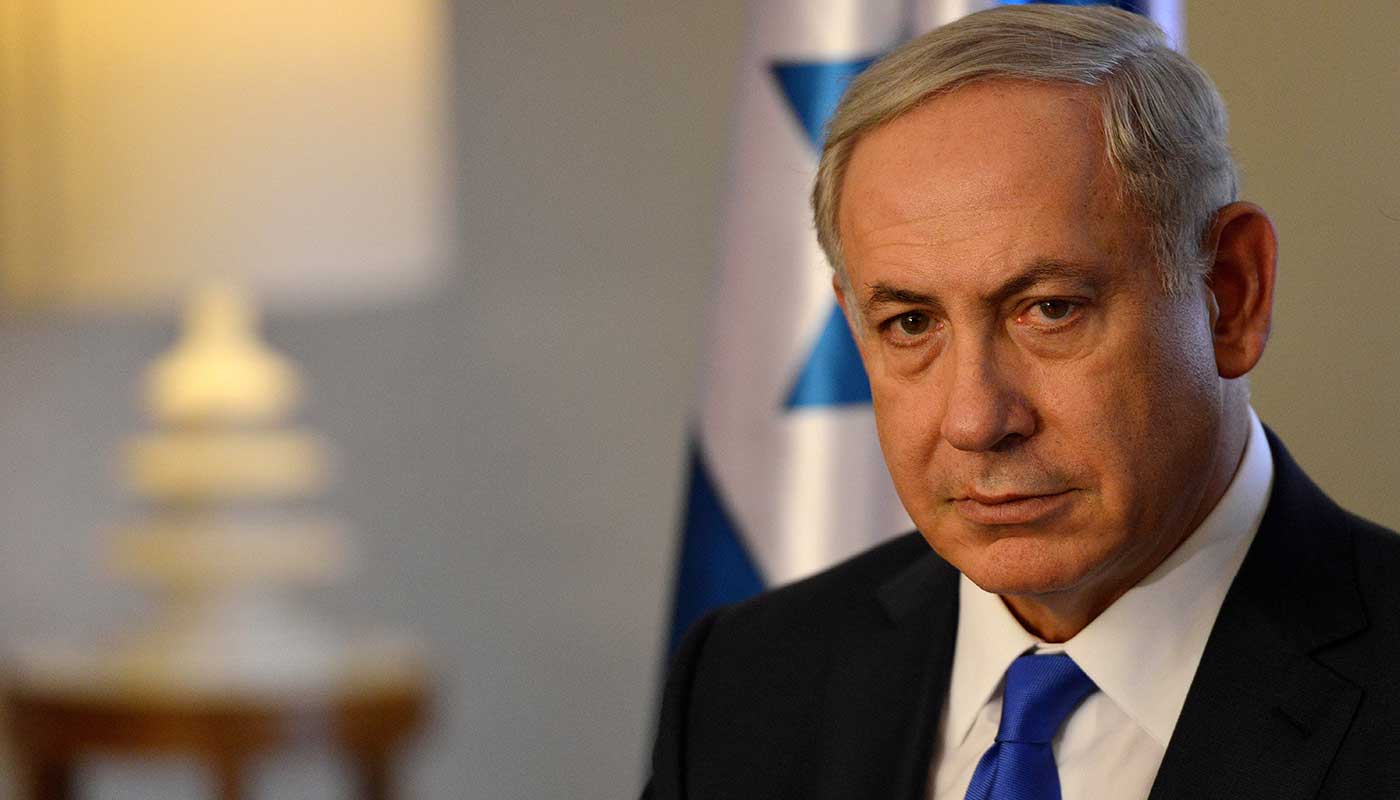Police recommend charges against Benjamin Netanyahu
Israeli Prime Minister accused of bribery and breach of trust

A free daily email with the biggest news stories of the day – and the best features from TheWeek.com
You are now subscribed
Your newsletter sign-up was successful
Israeli police have recommended that Prime Minister Benjamin Netanyahu be indicted on charges of bribery and breach of trust, following a 14-month investigation into two cases of alleged corruption.
In a statement, police said that enough evidence had been gathered against Netanyahu for committing “bribery, fraud, and breach of trust”, throwing his political future in doubt.
Netanyahu held a press conference in Jerusalem minutes after the release of the police statement, in which he strongly denied any wrongdoing, dismissed rumours that he would resign and said the recommendation was simply an attempt to remove him from office.
The Week
Escape your echo chamber. Get the facts behind the news, plus analysis from multiple perspectives.

Sign up for The Week's Free Newsletters
From our morning news briefing to a weekly Good News Newsletter, get the best of The Week delivered directly to your inbox.
From our morning news briefing to a weekly Good News Newsletter, get the best of The Week delivered directly to your inbox.
“All these attempts end up with nothing because I know the truth. I tell you, also this time, things will end up with nothing,” he said.
The BBC reports that the first case, dubbed “case 2000” centres on allegations that Netanyahu approached newspaper publisher Yediot Aharonot asking for “positive media coverage in exchange for help in reining in a rival publication.”
The second case, dubbed “case 1000”, revolves around claims that Netanyahu has accepted illicit gifts valued at around one million shekels (£204,000).
The majority of the gifts, valued at 750,000 shekels, allegedly came from Hollywood producer and media magnate Arnon Milchan, while the remainder were provided by Australian billionaire businessman James Packer.
A free daily email with the biggest news stories of the day – and the best features from TheWeek.com
The Guardian says in return for the gifts, Netanyahu provided Milchan with help on “US visa matters and Israeli tax breaks.”
Netanyahu has vowed to stay on as Prime Minister, and indicated that he intends to run in elections that must be held before the end of 2019.
-
 ‘Zero trimester’ influencers believe a healthy pregnancy is a choice
‘Zero trimester’ influencers believe a healthy pregnancy is a choiceThe Explainer Is prepping during the preconception period the answer for hopeful couples?
-
 AI surgical tools might be injuring patients
AI surgical tools might be injuring patientsUnder the Radar More than 1,300 AI-assisted medical devices have FDA approval
-
 9 products to jazz up your letters and cards
9 products to jazz up your letters and cardsThe Week Recommends Get the write stuff
-
 Epstein files topple law CEO, roil UK government
Epstein files topple law CEO, roil UK governmentSpeed Read Peter Mandelson, Britain’s former ambassador to the US, is caught up in the scandal
-
 Iran and US prepare to meet after skirmishes
Iran and US prepare to meet after skirmishesSpeed Read The incident comes amid heightened tensions in the Middle East
-
 Israel retrieves final hostage’s body from Gaza
Israel retrieves final hostage’s body from GazaSpeed Read The 24-year-old police officer was killed during the initial Hamas attack
-
 China’s Xi targets top general in growing purge
China’s Xi targets top general in growing purgeSpeed Read Zhang Youxia is being investigated over ‘grave violations’ of the law
-
 Panama and Canada are negotiating over a crucial copper mine
Panama and Canada are negotiating over a crucial copper mineIn the Spotlight Panama is set to make a final decision on the mine this summer
-
 Why Greenland’s natural resources are nearly impossible to mine
Why Greenland’s natural resources are nearly impossible to mineThe Explainer The country’s natural landscape makes the task extremely difficult
-
 Iran cuts internet as protests escalate
Iran cuts internet as protests escalateSpeed Reada Government buildings across the country have been set on fire
-
 US nabs ‘shadow’ tanker claimed by Russia
US nabs ‘shadow’ tanker claimed by RussiaSpeed Read The ship was one of two vessels seized by the US military